
A handful of organizations are combining crypto with decentralized finance models to create better payment systems for trucking companies.
The trucking industry is one of the most important sectors in the world. According to recent statistics, the global freight trucking market was worth over $2.7 trillion in 2021. In addition, it’s been found that millions of commercial driver’s license holders are employed by trucking companies within the United States, a market that is responsible for delivering 70% of all freight.
Given these statistics, it shouldn’t come as a surprise that technology has become a critical component for ensuring the advancement of the trucking industry. Yet while GPS tracking, autonomous driving and other mainstream technologies may be apparent, a couple of organizations are aiming to bring decentralized finance (DeFI) to the trucking sector to advance its payment systems.
Faster, fairer payments for trucking companies
Philip Schlump, chief commercial officer and lead developer of TruckCoinSwap (TCS) — a Wyoming-based fintech and freight company — told Cointelegraph that there are more than one million trucking companies and third-party logistics firms in the United States relying on banking entities to get paid. Schlump, who is also a former truck driver, explained that this has become the case due to how the full truckload industry’s payment system operates. He explained:
“When a truck picks up a full load of potatoes, for instance, a bill of lading is generated. This is essentially proof that the trucker and the trucking company are responsible for the potatoes during the shipment period. Once the potatoes are delivered, the bill of lading becomes account receivable, yet it often takes a net 30 to 180 days for trucking companies to receive payments.”
While Schlump pointed out that smaller full truckload companies tend to have better payment terms, 45 days is the average time it takes within the United States for truck drivers to get paid. As a result, trucking companies have become reliant on factoring firms to help truckers receive quicker payments, as these entities ensure payments are made within 10–14 days.
Yet, Schlump noted that this alternative eats away at drivers’ salaries. “Factoring companies typically charge 3% gross on every invoice, so a 20–25% interest rate is annualized over the term. These banking entities are collecting up to 90% of net revenue on every load simply because most carriers cannot wait the industry standard of 30–180 days to be paid directly by shippers,” he remarked.
Schlump believes that cryptocurrency, combined with DeFi concepts, can potentially solve this problem. For example, Schlump explained that TCS replaces factoring companies with a token-based settlement service that allows trucking companies to get paid at face value within a few days. In order to ensure this, Schlump explained that TCS launched its “TCS Token” on the CrossTower crypto exchange in September this year. TCS will then work directly with trucking companies to buy a bill of lading using the tokens. He said:
“We are swapping the bill of lading for tokens. We are now able to pay trucking companies at the face value for their bill of lading, and they get instant liquidity in return by selling TCS Tokens.”
Schlump added that while trucking companies obtain liquidity faster, TCS becomes assigned with the commercial rights associated with the bill of lading. Yet Schlump mentioned that these accounts receivable are typically inexpensive to handle, noting that once the money is collected from this process, TCS will buy back the TCS tokens from the trucking companies.
Recent: WhatsApp crash: Are decentralized blockchain messengers a real alternative?
“We end up being the largest buyer of our token over time. We have a fixed number of tokens. The trucking companies act like token miners in this case. They’re not investing in crypto, as TCS has built the tokenomics model around that,” Schlump pointed out.
Although this process may sound complex, Schlump believes that such a model could result in a $20,000 to $60,000 income increase for truck drivers. “We are currently beta testing this model and are working with trucking companies to ensure this works,” he said.
TCS isn’t the only company using cryptocurrency and DeFi concepts to advance trucking payment systems. Myron Manuirirangi, founder of Truckonomics — an organization focused on fair salaries for long-haul truck drivers — told Cointelegraph that he also believes cryptocurrency, combined with blockchain technology, can be extremely beneficial for truck drivers.
Like Schlump, Manuirirangi is a former truck driver. Through this experience, Manuirirangi became aware of the fact that there is a shortage of truck drivers across the globe. “I started researching why this was the case and came to the conclusion that there is a shortage of truck drivers due to inadequate compensation.”
To put this in perspective, a FrieghtWaves article published in 2018 noted that a trucker in 1980 earned an average of $38,618. Almost 40 years later, in 2018, they earned around $41,000.
“The driver shortage isn’t a problem, but rather a symptom of a much larger issue that Truckonomics aims to solve with a token-based model,” said Manuirirangi.
He explained that Truckonimics has created a digital token known as “GDPC” for trucking and shipping companies to use as a payment method. In addition, GDPC will be tied to all activities taking place during the shipment process, using blockchain tech to provide transparency and a single source of truth between shipment companies, retailers and consumers. “We are building this model on the Avalanche blockchain. We will then build our own blockchain platform to facilitate trade and transactions using the GDPC token.”
By connecting GDPC with freight shipments, Manuirirangi believes that this will add intrinsic value to Truckonomic’s token. “As more trucking companies use GDPC, the more the price will be impacted.” In turn, truck drivers will be able to receive payments faster at much higher rates — as long as the token is used and becomes implemented on a crypto exchange. At the same time, Manuirirangi thinks that the blockchain component will help advance the trucking industry’s infrastructure.
“The trucking industry has needed blockchain for a while, yet no one has found a way to properly implement this technology. Having the GDPC token associated with Truckonomics can modernize the industry by helping pay the high costs associated with blockchain implementation, while also bringing transparency to freight shipments,” he said.
Is the trucking industry ready for DeFi?
Although cryptocurrency and DeFi concepts have the potential to revolutionize payments within the trucking sector, a number of challenges remain.
First and foremost, getting truck companies and drivers involved with such business models could be difficult since cryptocurrency remains misunderstood by many individuals. Schlump is optimistic, however, noting that 21% of Americans are familiar with using cryptocurrency. He added that TCS has conducted internal surveys and has found that 17% of truck drivers are open to receiving crypto payments. He said:
“It becomes less challenging when there are a million trucking companies and you only need to work with about 500 to be successful. In terms of value, this can add thousands of dollars per year to trucker drivers’ salaries, so this generates positive attention as well.”
From a regulatory perspective, Schlump further mentioned that TCS Token is not an investment, as it functions as a commodity with a fixed supply. Moreover, he mentioned that TCS is a Wyoming-based company, a factor that has helped TCS gain regulatory clarity due to the state’s crypto-friendly stance.
Manuirirangi also pointed out that Truckonomic’s GDPC token has been put through the Howey test to prove that it’s not an investment vehicle. “This is a decentralized native token with smart contract functionality,” he said.
While these points are notable, some industry experts believe that DeFi adoption by enterprises and institutions will be slow, given the sector is still in development. For example, Mike Belshe previously told Cointelegraph that while he believes DeFi will overtake traditional financial institutions, it will take at least another two to three years before real progress is made.
Yet real-world DeFi use cases may help speed up adoption. “We have a real-world use case, unlike many crypto-based projects. TCS is targeting a $500 billion a year market, with a significant dollar-value added when trucking companies run payments through our settlement service,” highlighted Schlump.
Meanwhile, trucking companies have been successfully implementing blockchain without cryptocurrencies. For example, Xavier Fernandez, chief technology officer and technical lead for Smart EIR — a blockchain-based container management system — told Cointelegraph that Smart EIR uses the Antelope blockchain network (previously EOSIO) to document the history of containers.
Recent: US Election update: Where do the pro-crypto candidates stand ahead of the election?
“We focus on the equipment interchange receipt, which is a form that is generated every time a container goes from one interchange point to another.” According to Fernandez, photographic data from these containers are stored on a private IPFS network, while metadata is stored on the Antelope blockchain network.
While Fernandez mentioned that this use case comes in handy for dispute resolutions, there is no cryptocurrency element involved: “Crypto volatility and regulatory concerns have created too much controversy. We are just using blockchain as a ledger, and a single source of truth to create trust within an ecosystem.”

You can get bonuses upto $100 FREE BONUS when you:
💰 Install these recommended apps:
💲 SocialGood - 100% Crypto Back on Everyday Shopping
💲 xPortal - The DeFi For The Next Billion
💲 CryptoTab Browser - Lightweight, fast, and ready to mine!
💰 Register on these recommended exchanges:
🟡 Binance🟡 Bitfinex🟡 Bitmart🟡 Bittrex🟡 Bitget
🟡 CoinEx🟡 Crypto.com🟡 Gate.io🟡 Huobi🟡 Kucoin.
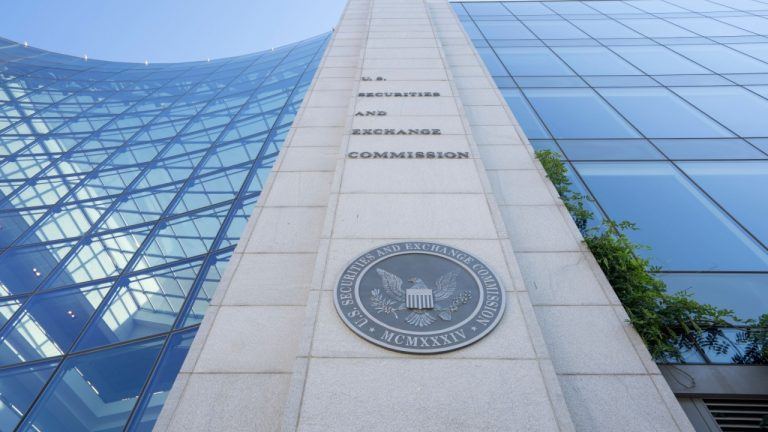
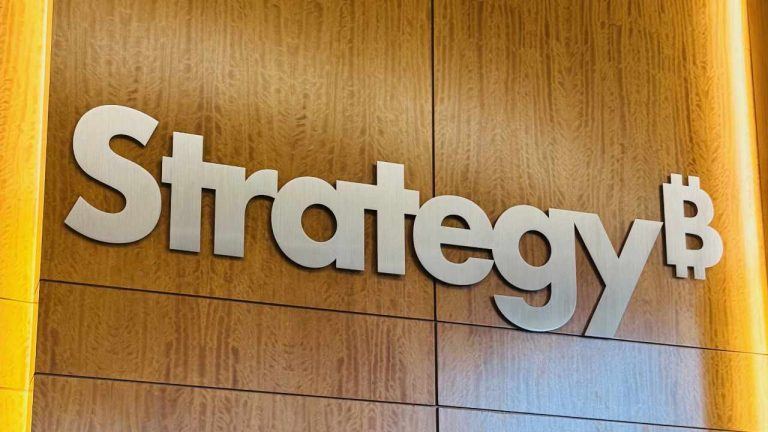



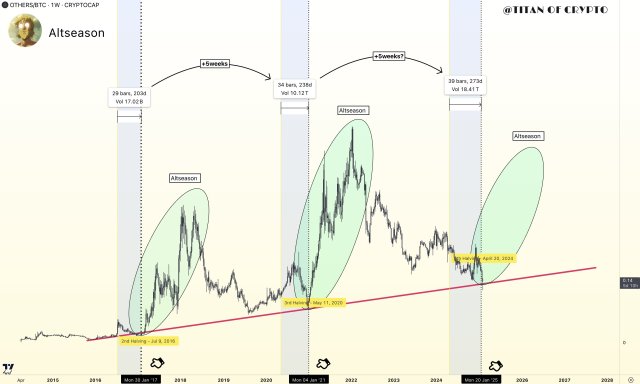





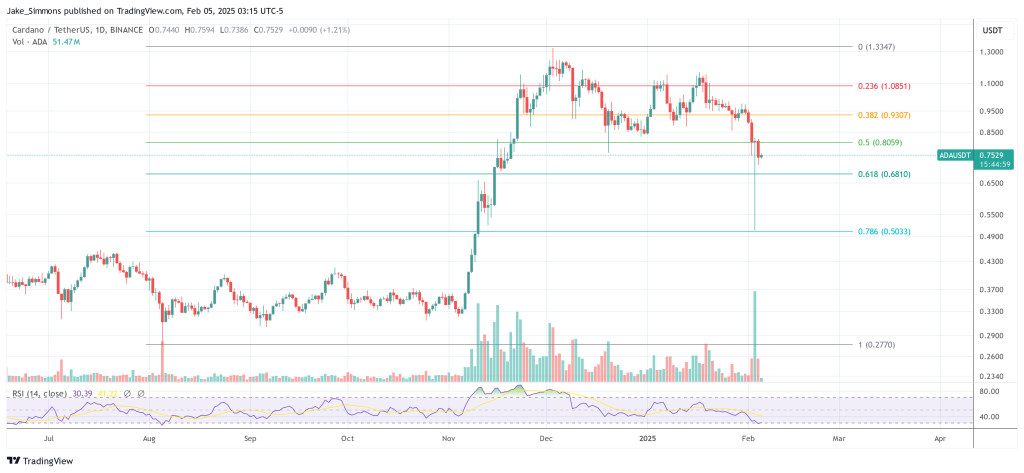


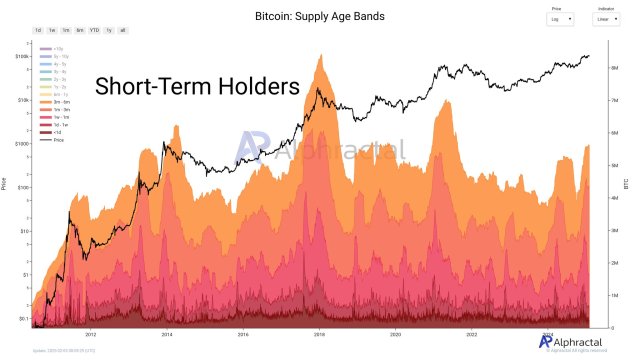





Comments